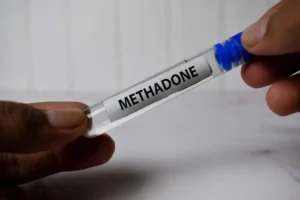
As cannabis becomes more common, driving while under the influence of cannabis will become a larger issue so saliva tests may be more common. It’s also important to remember that “occasional” and “chronic” cannabis users each represent opposite sides of the usage spectrum, and most consumers would likely fall somewhere in the middle. Like hair tests, these urine screens do not directly measure the amount of THC present, but rather the levels of the metabolite THC-COOH. CBD Oracle’s primary mission is to provide accurate, evidence-based information, and our medical reviewers hold us accountable to this goal. A new how long does weed stay in your system report from the UK finds that cannabis improves quality of life and provides other significant benefits in individuals suffering from PTSD. The body processes THC (delta-9-tetrahydrocannabinol), the intoxicating cannabinoid known for creating euphoric, stoned effects in several ways, and is dependent on the method of consumption.
Marijuana and Weight:

▵9_THC is volatile viscous oil with high lipid solubility and low aqueous =https://ecosoberhouse.com/ solubility and a pKa of 10.6. ▵9_THC is present in cannabis as a mixture of mono-carboxylic acids, which gets readily and efficiently de-carboxylated upon heating (9). It decomposes when exposed to air, heat or light (13) and readily binds to glass and plastic.
Evidence Based

Of course not; it depends on how frequently you smoke, M/F and how much you weigh. On amphetamine addiction treatment average, urine tests can detect THC from three to seven days. That range will depend on how much marijuana you use and for how long. Tests can detect THC in urine for up to 30 days in a heavy user who uses weed at least once per day. An older study notes a slight increase in THC levels following exercise in people who regularly use cannabis.
- This ▵9-THC concentration rapidly decreases to 1-4 ng/mL within 3-4 hour (57).
- We looked into published scientific studies about how long does weed stay in your system.
- Seek support from friends, family, or a professional counselor.
- Anxiety can be a sign of cannabis intoxication, but it is also a symptom of cannabis withdrawal.
Saliva Test

Once a certain test is chosen, the experimenter needs to select its cutoff concentration of THCCOOH above which it’s considered a positive test. For most urine tests, the most common cutoff is 50 nanograms per milliliter (ng/mL) but can be as low as 15 ng/mL — with each resulting in largely different detection windows. One study did find that some heavier cannabis users triggered a positive result in a blood test even after abstaining for 7 days. In general, heavy cannabis users should be concerned about these windows potentially being greater depending on your exposure to THC. Testing urine is one of the most common methods for determining marijuana use. Most urine tests can detect marijuana several days after you have last had it.
Marijuana Addiction Treatment & Rehab
Hair tests are not often used because they’re lengthier and more expensive. However, they’re very accurate and can show a pattern of marijuana usage for months after the last dose. Traces of THC are deposited on the hair shafts from the blood vessels in your scalp and remain there as the hair grows out. THC affects your brain while you’re consuming marijuana and for up to a few hours afterward.
- The most common ways marijuana can be tested for is in urine, saliva, blood, or hair.
- You can input your sex, weight, height, metabolism and activity levels.
- These products, while legal, could trigger a positive result as they can create the same byproducts or leave trace amounts of THC in your bloodstream.

It’s unlikely that you’ll fail a standard urine drug test with the federally-recommended 50 ng/mL cutoff for more than 21 days. If it’s the first time you’ve used cannabis, you’ll probably be clear for the test within 3 to 5 days. Hair tests can detect THC metabolites for as long as 90 days; however, these tests can be inaccurate or misleading when detecting recent cannabis consumption in light consumers. Saliva tests can detect THC metabolites for one to three days after consumption or a month if you consume regularly. THC metabolites can be detected in saliva for one to three days after occasional consumption or a month if you consume regularly.
Behavioral and Physiological Effects of Cannabis

For the study, researchers cut hair into 1-centimeter sections to test for exposure up to a month prior. THC metabolites stay in the body for at least 1–30 days after use. Regular cannabis users may have elevated THC levels even after a period of abstinence. Blood tests typically detect recent cannabis use or use that has occurred within the last 2–12 hours. “Cannabis metabolites accumulate in body fat and can take weeks to leach out of the body, so some effects of withdrawal may last a long time,” says Umhau. Interaction of chronic marijuana with other drugs of abuse has not been studied in detail.
